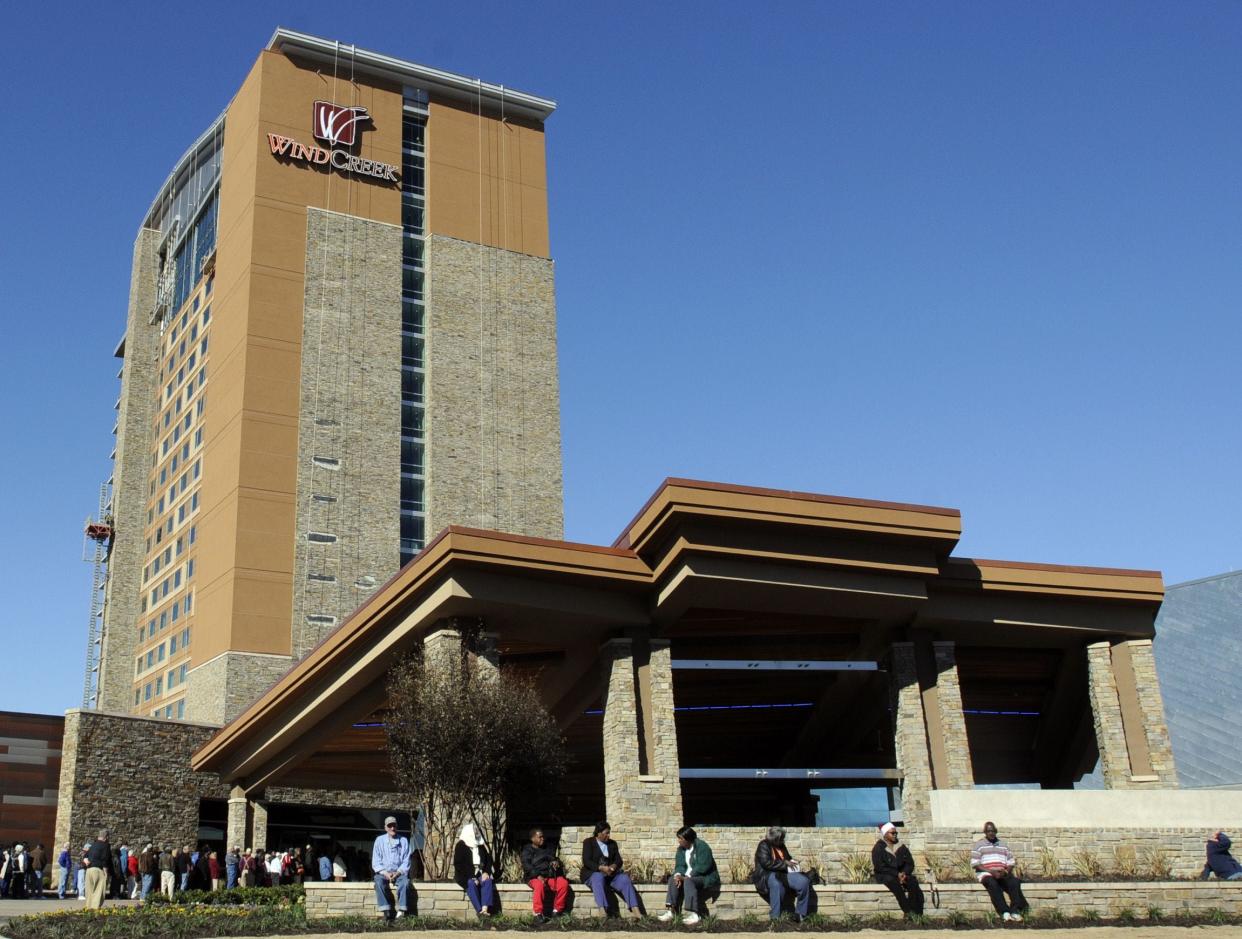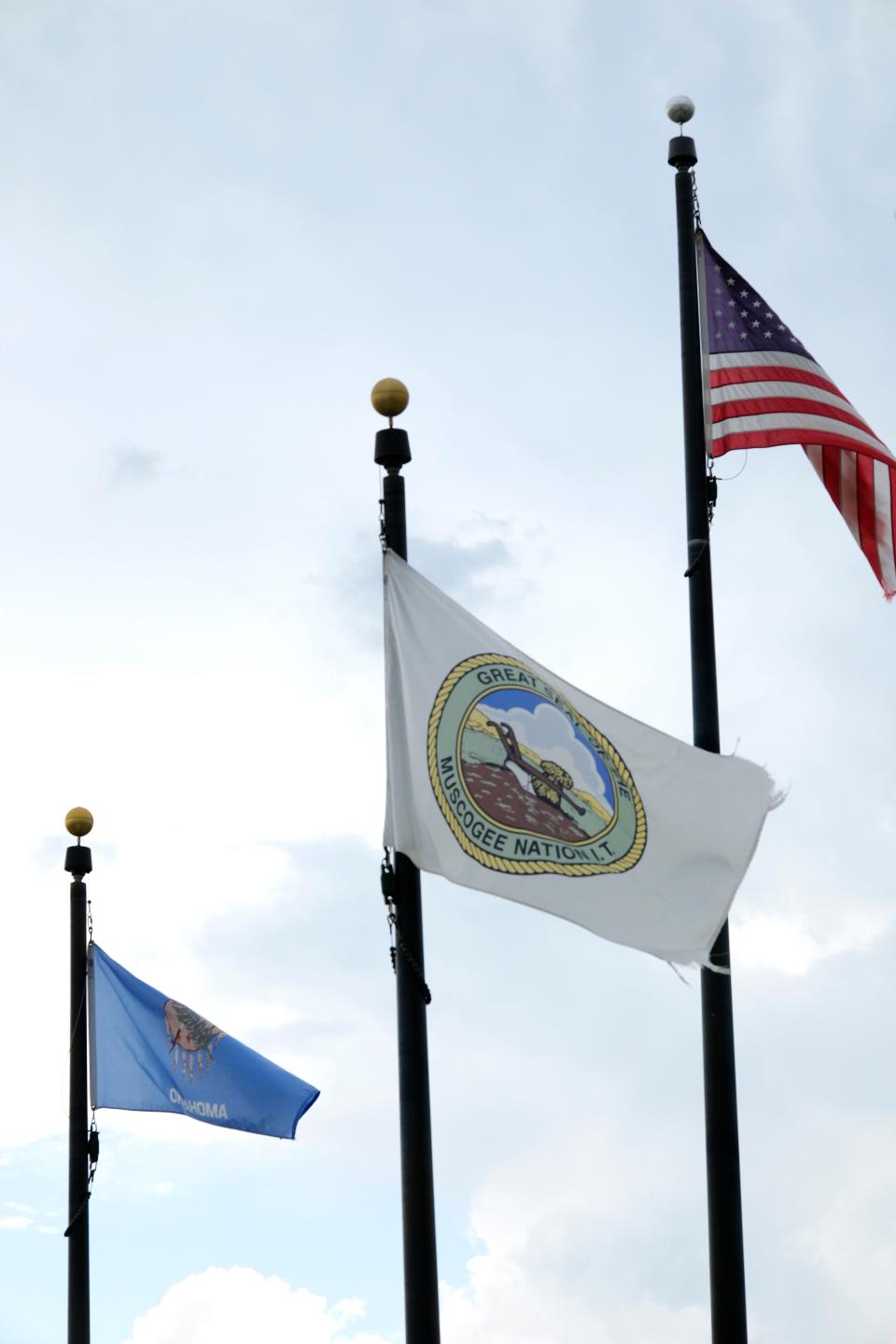Muscogee Nation renews effort to protect sacred tribal site in former Alabama home

The Muscogee Nation filed an appeal Friday in federal court to revive its legal fight to protect a sacred Alabama site tribal leaders say was desecrated.
Muscogee people were forced to abandon the ceremonial grounds north of present-day Montgomery and move to Indian Territory on the Trail of Tears. Tribal leaders contend the land has been mismanaged and excavated to remove human remains, in spite of promises it would be preserved.
A casino resort has operated on the grounds for nearly a decade.
“We feel that we have to do what we need to do to protect our homelands, our original homelands,” said David Hill, the principal chief of the Muscogee (Creek) Nation, which is now based in Okmulgee south of Tulsa.
The tribe has been trying to prevent the destruction of the Hickory Ground site since before the casino was built. A federal district court dismissed the tribe’s lawsuit in 2021, prompting its new appeal to the 11th Circuit Court of Appeals where it faces a significant legal hurdle. The Muscogee Nation will need to convince the federal appeals court that it should be allowed to sue another sovereign government. The main defendant is the Poarch Band of Creek Indians, headquartered in southwest Alabama.
Hill and other Muscogee leaders contend that while they share historical ties, the Poarch Band has no clear connection to Hickory Ground Tribal Town, one of oldest and most prominent centers of civic and ceremonial life in the Muscogee Nation, a confederacy of tribal towns.
More: Oklahoma tribes urge lawmakers to override governor's latest veto
How the Muscogee Nation is aiming to further protect the Hickory Ground site
Members of Hickory Ground Tribal Town made the 800-mile journey from Alabama to Oklahoma with other Muscogee people and carried their sacred fire with them, said RaeLynn Butler, who manages the Muscogee Nation’s historic and cultural preservation department.
“That fire still burns today by Muscogee people and by Hickory Ground ceremonial ground,” Butler said. “That’s why we are fighting so hard to protect such a sacred place.”
The Muscogee Nation wants to stop the grounds from being further disturbed and to repatriate unearthed remains and funeral objects.

A Poarch Band spokesperson did not immediately return a request to comment on the appeal or the bigger dispute over the Hickory Ground site.
The tribal town and its ceremonial grounds are led today in Oklahoma by a chief, or mekko in the Mvskoke language, who is a direct descendant of people buried at the Alabama site, the Muscogee Nation said in its legal filing.
Dozens of bodies have been exhumed from site, tribal officials say
Tribal officials believe at least 57 bodies have been exhumed from the grounds, including some stored today in plastic boxes, in a shed and at Auburn University.
“It’s nothing that anyone would want to see — a family member, grandparents stored, when they were buried with respect,” Butler said. “They should have never been dug up.”
The Poarch Band took over responsibility for the land in 1980 through federal historic preservation laws, and today the federal government holds the land in trust for the tribe.
The Muscogee Nation contends Poarch Band officials have desecrated the site in violation of federal laws.
“The only reason Poarch possesses Hickory Ground is because Poarch promised to protect it,” the tribe says in its legal filing. “Poarch has no ‘sovereignty interest’ in breaking the promises it made when it told the United States that granting Poarch the money to purchase Hickory Ground was ‘necessary to prevent destruction of the site.’”
High-profile Indian law attorney Mary Kathryn Nagle, a Cherokee Nation citizen, is leading the tribe’s appeal.
Hill said he has been disappointed that the dispute has languished for so long, but believes defending the site is vital to the future of the Muscogee Nation.
“In our culture and our tradition, we’re still following what our ancestors did, and we’ll continue to do so, as well. That basically identifies who we are,” Hill said. “We want to keep our language, our culture, our history (and) carry that on to our kids, our grandkids. Once we lose that, we no longer exist.”
Molly Young covers Indigenous affairs. Reach her at mollyyoung@gannett.com or 405-347-3534.
This article originally appeared on Oklahoman: Muscogee Nation seeks to protect Hickory Ground in Alabama

